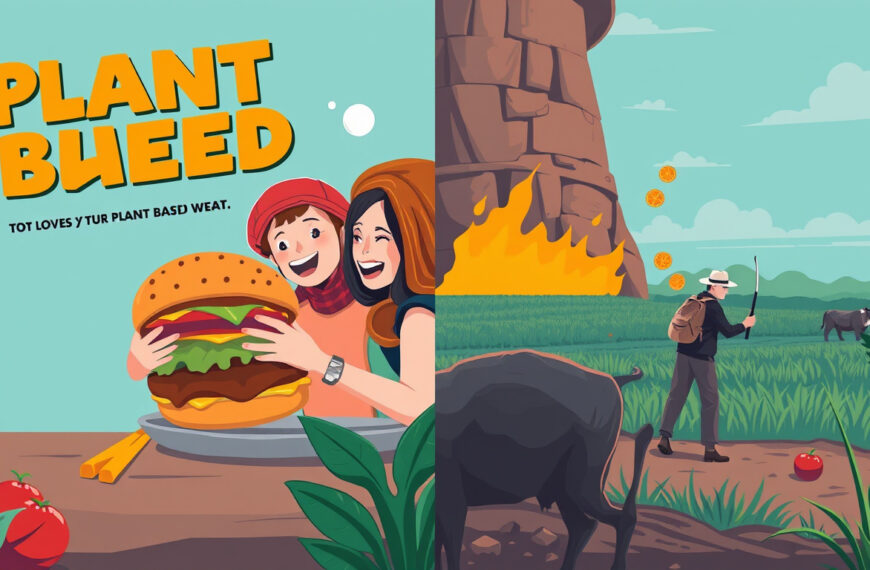Across the globe, numerous towns and cities face the daunting challenge of waste management, often finding themselves overwhelmed by the sheer volume of trash that accumulates. This accumulation of waste not only tarnishes the aesthetic appeal of these communities but also presents serious environmental hazards and health risks to residents. However, innovative approaches in waste management and community engagement are rendering formerly trash-laden areas into thriving, vibrant communities. Here’s how.
The Waste Crisis: Understanding the Problem
Many towns are grappling with inadequate waste management systems that result in overflowing landfills, littered streets, and polluted environments. The consequences are far-reaching, affecting public health, degrading local ecosystems, and diminishing the quality of life for residents. The visible presence of waste can perpetuate a negative feedback loop, where communities feel stigmatized and neglected, hindering development and investment.
A Call for Change
Recognizing these challenges, several municipalities have embarked on ambitious initiatives aimed at transforming their waste into opportunities. Successful transformations often rely on a combination of strategic planning, community involvement, and innovative practices. Here are key strategies that have shown promise in turning trashy towns into places of pride and prosperity.
1. Community Engagement and Education
Engaging community members is crucial in any successful waste management initiative. Raising awareness about the benefits of waste reduction, recycling, and composting can empower residents to take ownership of their environment. Educational workshops, school programs, and local events can foster a culture of sustainability. When residents feel connected to their community’s cleanliness, they are more likely to participate actively in programs designed to improve their surroundings.
2. Innovative Waste Management Practices
Innovation is at the heart of transforming waste into useful resources. Many towns have begun exploring waste-to-energy technologies and composting programs, converting organic waste into valuable fertilizer or biogas. Moreover, implementing smart waste collection systems using technology can optimize routing and reduce costs. For instance, sensors can alert waste management services when bins are full, minimizing overflow and litter.
3. Eco-Friendly Urban Design
Transforming physical spaces can drastically change the perception of a community. Urban renewal projects focusing on green spaces, public parks, and vibrant community areas have been instrumental in many successful transitions. Initiatives that incorporate plants, trees, and gardens not only beautify neighborhoods but also help absorb pollution and provide valuable habitats for local wildlife.
4. Partnerships and Collaborations
Collaboration between local governments, businesses, and non-profits can enhance the effectiveness of waste transformation efforts. For example, engaging local businesses in recycling programs can facilitate shared responsibility and promote a sustainable economy. Community clean-up events sponsored by local organizations combine efforts that enhance community spirit while tackling waste directly.
5. Policy Implementation and Incentives
To ensure sustainability, effective policies must be implemented at the local or national level. These can include regulations that limit single-use plastics, incentives for recycling and composting, and penalties for littering. Supportive policies help create an environment where sustainable practices are the norm rather than the exception, contributing to a substantial decrease in waste over time.
Success Stories
Communities worldwide have successfully implemented these strategies with transformative results. For instance, towns in countries like Sweden and Japan lead in recycling efforts and waste management innovation. Not only have these towns significantly reduced their waste output, but they’ve also fostered community pride and attracted tourism, enhancing local economies.
Conclusion: The Path Forward
The journey from waste to wonder is neither quick nor easy, but it is attainable. By harnessing the power of community, education, and innovative practices, trash-ridden towns can reclaim their image, paving the way for vibrant, thriving neighborhoods. As more communities adopt these strategies, the collective effort can lead to a cleaner environment, improved public health, and ultimately, a better quality of life for all residents.
In embracing change and working together, struggling towns may yet find that within their waste lies the potential for renewal and growth, transforming not just their landscapes, but their very identities.
Ready to get in the game and start making money on Pump.fun? DogWif Tools is the #1 memecoin sniper tool for becoming a Pump.fun millionaire. Get DogWif Tools today and become a memecoin dev!








